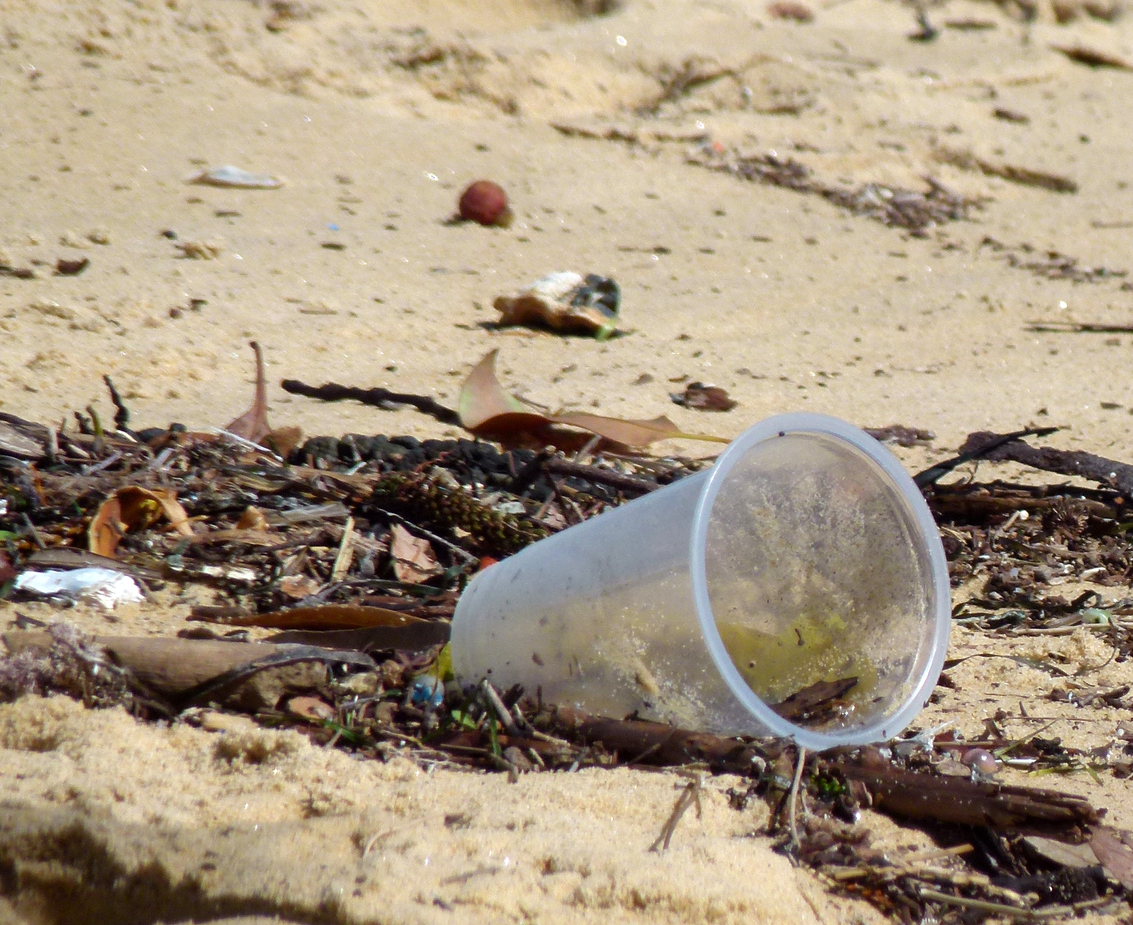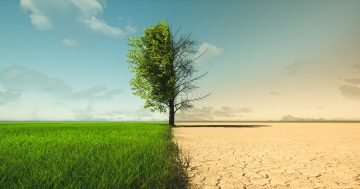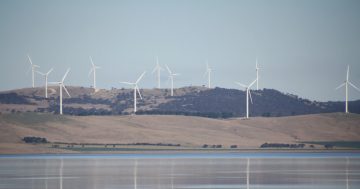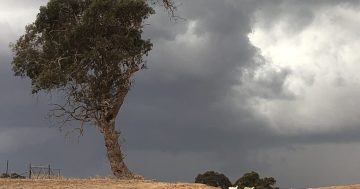
Single-use plastic cups have become less prevalent, but their legacy remains. Photo: L Bails.
I grew up during the millennium drought: egg-timer two-minute showers, never watering the lawn or washing the car, never running water while doing the dishes and always being extra cautious about unnecessary water use.
The habits of that time have stuck with me. I still take short, efficient showers, never leave a tap running and carefully consider my water use.
The anxiety about water usage during drought was the precursor to a more generalised understanding of how my personal actions and choices impact the environment and the climate. As a whole, I feel that awareness across the community. We talk more about cutting out single plastic use, recycling, driving less, and I even have friends who won’t travel internationally at all because of the emissions.
But as we head into more extreme weather and a likely return of drought conditions, are we actually doing enough as individuals in response to the growing urgency of climate change?
First, a caveat: individual actions can only take us so far, and placing the onus on individuals to tackle climate change and its pressures on our environment through our micro choices won’t do much for the major causes of emissions, which are national and global industry.
Coordinated government action is really the only way to make a significant difference, and our individual actions, while important, can’t counter the continued use of fossil fuels and other environmental impacts from major industries.
But that doesn’t mean we don’t each still have a responsibility to do our best, and I wonder if Canberra’s past two years of steady rainfall have made us a bit complacent.
Every weekend, my neighbours pull their cars out of their garages, park on the concrete driveway and wash them with buckets and buckets of water. I’m not exaggerating – this is every single week for some of these people. Personally, that feels like a gratuitous waste of water, especially when we live somewhere where runoff can’t even get to a lawn or shrubbery.
Post-COVID, the use of reusable cups and straws has become less commonplace, and even I find myself forgetting at times to carry around these items that were so habitual pre-COVID bans.
The other day, as I was doggedly trying to use biodegradable disinfectant wipes in the kitchen (which is already a less environmentally friendly thing to do), I found myself thinking how much easier it would be to use the non-biodegradable ones, given the one in my hand seemed to be degrading in real-time. But then I thought how messed up it was that I could actually do that because the introduction of biodegradable and plastic-free alternatives to single-use household items hasn’t actually stopped the production of their environmentally unfriendly counterparts. So what difference do they actually make?
With drought around the corner, I am on high alert regarding the condition of our green spaces and the impact I am having on them. As someone who also owns grazing livestock, this feeling is particularly acute – I see the dryness and feel the extreme heat daily and am preparing myself for a return to anxiously watching for bushfires, trying to supplement the lack of grass in paddocks and struggling to keep my animals comfortable when the temperatures are very high for long stretches.
But I’m also asking myself more and more, how much am I actually changing my life to account for and have less of an impact on climate change? It feels too easy still to do nothing – but without more impetus, through measures like having the cheaper, wasteful versions of products no longer available or by laws enforced by government, it’s hard to let old habits die.





















